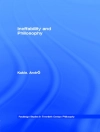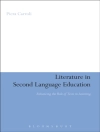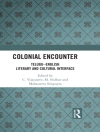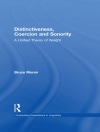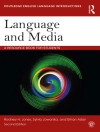This edited book brings together an international cast of contributors to examine how academic literacy is learned and mastered in different tertiary education settings around the world. Bringing to the fore the value of qualitative enquiry through ethnographic methods, the authors illustrate in-depth descriptions of genre knowledge and academic literacy development in first and second language writing. All of the data presented in the chapters are original, as well as innovative in the field in terms of content and scope, and thought-provoking regarding theoretical, methodological and educational approaches. The contributions are also representative of both novice and advanced academic writing experiences, providing further insights into different stages of academic literacy development throughout the career-span of a researcher. Set against the backdrop of internationalisation trends in Higher Education and the pressure on multilingual academics to publish their research outcomes in English, this volume will be of use to academics and practitioners interested in the fields of Languages for Academic Purposes, Applied Linguistics, Literacy Skills, Genre Analysis and Acquisition and Language Education.
Jadual kandungan
1. Academic Literacy Development: What Does It Entail for Multilingual Scholars?.- Part I. Language Policies and Academic Literacy.- 2. Polycentricity and Scaling in Analysing Textual Trajectories of Writing for Publication.- 3. Must All Theses Be Written in English? Implications of Language Requirements in UK Universities.- 4. What Counts as ‘Good’ Academic Writing? The Interplay of Writing Norms in International Higher Education.- Part II. Developing and Linking Literacies: Academic, Professional Literacy and Genre-Related Literacy.- 5. Methods for Developing Literacy in Professional and Academic Contexts: Using Protocol-Assisted Modeling.- 6. Taking the Ethnomethodological Lens to Enquire into Academic Literacy Development in Graduate Students.- 7. Developing Writer Autonomy in an Intensive EMI Program: Learners’ Perceptions.- 8. “Where Does the Science Go?”: An Ethnographic Study of Chemistry Ph D Students Learning Science Communication Genres.- Part III.Agency, Identity and Self-representation in Literacy Development.- 9. Authorial Voice in Doctoral Writing: Published Advice.- 10. Dimensions of Student Writer’s Self in Qualitative Research Interviews.- 11. Researcher Reflexivity in an Ethnographic Study on Academic Literacy Development.- Part IV. Individual Trajectories in Academic Literacy Development.- 12. Knowledge Construction and Dissemination: The Narrative of a Multilingual Early Career Academic.- 13. Engaging Internationally in Academia: How Personal Experience Shapes Academic Literacy Development.- 14. Learning from Feedback via Peer Review: Using Concept Maps to Explore the Development of Scholarly Writing Literacies.- 15. The Research Networks and Writing for Publication Practices of Two Colombian Early-Career Researchers: A Longitudinal Interview Study.- Academic Literacy Development After the Spring of 2020: Quo Vadis?.- 16. Adapting a Framework for Designing and Teaching an Online Academic Writing Course for L2 Writers.- 17. Power, Identity, and Academic Literacy: A Coda.
Mengenai Pengarang
Laura-Mihaela Muresan is Professor of English at the Bucharest University of Economic Studies, Romania.
Concepción Orna-Montesinos is a Lecturer at Faculty of Education of the University of Zaragoza, Spain.


